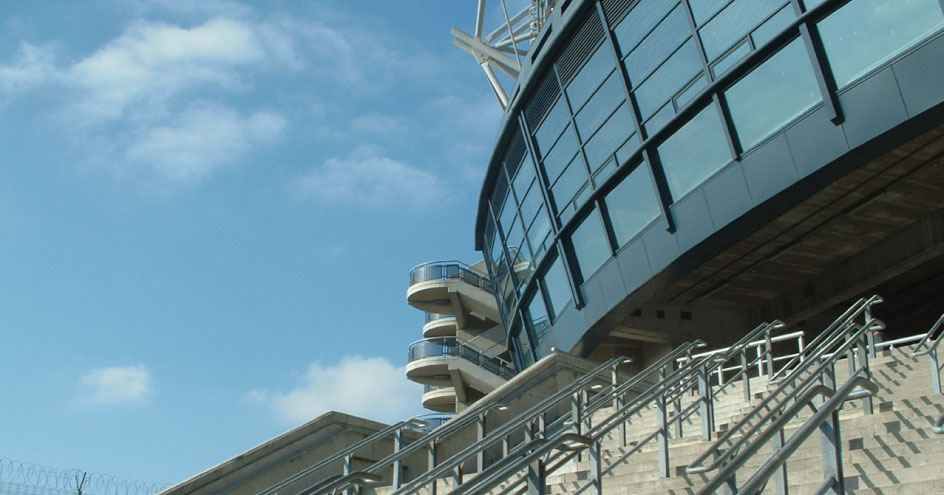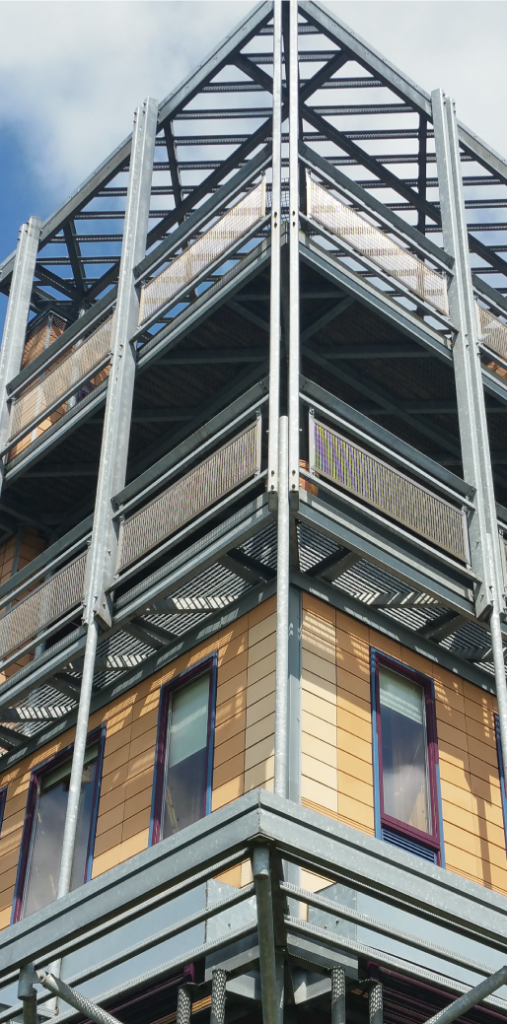Benefits
When iron is extracted from its ore, a fundamental tendency of nature is abruptly reversed. Unless protected, iron and steel will corrode in most environments, slowly returning to their natural state.
Corrosion prevention is an essential factor in the economic utilisation of steel. Provision of the appropriate protective coating can bring initial savings plus substantia! economies in service, due to reduction or elimination of maintenance and lost service time, and by deferring the replacement date of structures and equipment.

Galvanizing is the best solution for corrosion protection, offering significantly greater benefits than paint or any other coating system. In fact, when it comes to handling, durability, coating thickness, application and protection, there’s no comparison.
Architects and Engineers specify galvanizing because it’s the most effective corrosion system with a long, maintenance-free lifespan. And if you’re considering galvanizing, you might want to review the following major, measurable benefits:
Well-documented years of experience have proved the benefits of hot dip galvanized protection. At least 10-20 years are commonplace in industrial and marine environments, more than 25 years (frequently much more) in rural atmospheres. When maintenance eventually becomes necessary, it is straightforward: no complex preparation treatments are necessary.
For many applications the cost of galvanizing is lower than that of applying alternative coatings. Furthermore, galvanizing has been getting steadily cheaper compared with painting. The reason is simple: alternatives – particularly painting – are very labour intensive compared with galvanizing which is a highly mechanized, closely controlled factory process.
Low initial cost and long life make galvanizing the most versatile and economic way of protecting steel for long periods (20+ years). There are bonuses from no maintenance or extended maintenance intervals: fewer problems of access in remote areas, difficult terrain or when buildings are closely packed together; also when there are safety restrictions e.g. electricity pylons.
The process is relatively simple, straightforward and closely controlled. The thicknesses (weights) of coatings formed are regular, predictable and simply specified. Galvanizing is one of the few coatings which is completely defined by a I.S. EN ISO 1461:2022
A full protection coating can be applied in hours; a complicated paint system can require a week.
Galvanizing is unique: the hot dip process produces a coating which is bonded metallurgically to the steel. No other coating process has this feature, and as a result galvanized steel has by far the greatest resistance to mechanical damage during handling, storage, transport and erection – an important factor where steelwork is to be shipped around the world.
Because it is formed by dipping steel in molten zinc, all parts of the surface of the steel are coated – inside, outside, awkward corners, and narrow gaps which would be impossible to protect in any other way. The coating actually tends to build up at vital corners and edges – rather than thinning out as do brushed, sprayed and other dipped coatings.
Galvanized coatings protect steel in three ways.
- The coating weathers at a very slow rate giving a long and predictable life.
- The coating corrodes preferentially to provide cathodic (sacrificial) protection to any small areas of steel exposed through drilling, cutting or accidental damage; scratches are sealed by weathering products from the zinc.
Cathodic (sacrificial) protection
Zinc corrodes in preference to steel and sacrifices itself to protect the steel. If the steel is damaged the corrosion products from the zinc are deposited on the damaged area resealing it from the atmosphere and therefore preventing the sideways creep of corrosion. Hot Dip Galvanizing differs from paints in this respect as most paints give no protection at points of damage and only provide barrier protection.
- If the damaged area is larger, the sacrificial protection prevents the sideways creep of rust which can undermine paint coatings.
Coating thickness: μm measured from steel surface

Zinc coating compared in terms of coating thickness
Galvanized steel simplifies inspection of the protective finish. The nature of the process is such that if the coating looks continuous and sound, it is! Thicknesses – simply specified through BS EN ISO 1461 – can be easily checked with an electronic probe.
Galvanizing provides an attractive finish and offers a superior foundation for a decorative topcoat.
Galvanizing provides an attractive finish and offers a superior foundation for a decorative topcoat.
Zinc, like steel, is a natural substance that is recyclable.
of galvanising-plus-paint are often the most economical solution to the problem of protecting steel in highly corrosive environments. Such systems provide a synergistic effect in which the life of the combined coatings exceeds the total life of the two coatings if they were used alone.

Contact our team
Over the past 50 years, Galco has become a recognized leader offering high quality equipment and systems. We are dedicated to exploring the latest construction technologies to generate cost savings for clients.
Send Us a Message
Fields marked with an * are required
"*" indicates required fields



